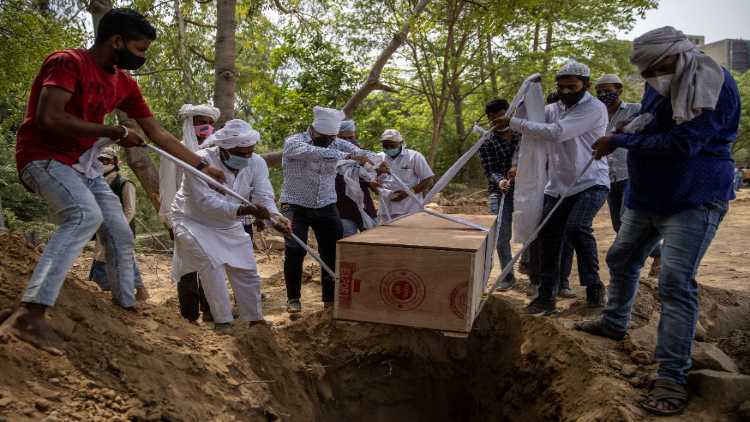
Ghaus Siwani/New Delhi
As per Islamic jurisprudence, it’s mandatory to performghusl (thorough bathing) on the body of a Muslim under normal circumstances. Giving a bath to the body is the responsibility of all those present; if the ghusl is performed by one, it’s taken as the good deed of all; if it’s not done because of one person, all others are also considered to have committed a sin.
However, in today’s circumstance of Covid taking many lives, many Muslims wonder how they should perform the ghusl on the body of a Covoid-dead person?
Bathing the corpse of such a person can lead to the spread it the infection. For this reason the hospitals pack the corpse in multiple layers of polythene and inject drugs in it to kill the remaining virus inside before handing it over to the family for the final rites. The problem is exacerbated when Covid-19 patients dies at home.
According to the guidelines of the central government, bathing of a corpse of a Covid-19 dead person is strictly prohibited. This guideline was issued by Health Minister Dr Harsh Vardhan.
Can the covid-19 virus spread from a corpse?
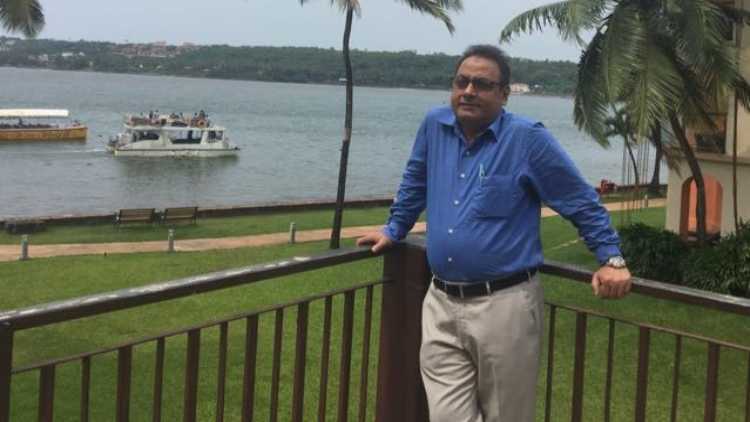
Dr Absar Ahmed
Speaking with Awaz-the voice, Dr Absar Ahmed, a specialist in medicine, said so far there is no evidence to show that those giving bath to the corpse have been infected with the virus. However, caution must be taken since the disease is now very little is known about it.
Dr Kamal Ahmed said that an infected person can spread the disease through his saliva and breath. After the death, the breath stops and saliva and blood freeze trapping the virus inside the body. So, there is no danger of the virus spreading. It can be washed carefully by people wearing PP kits and gloves.
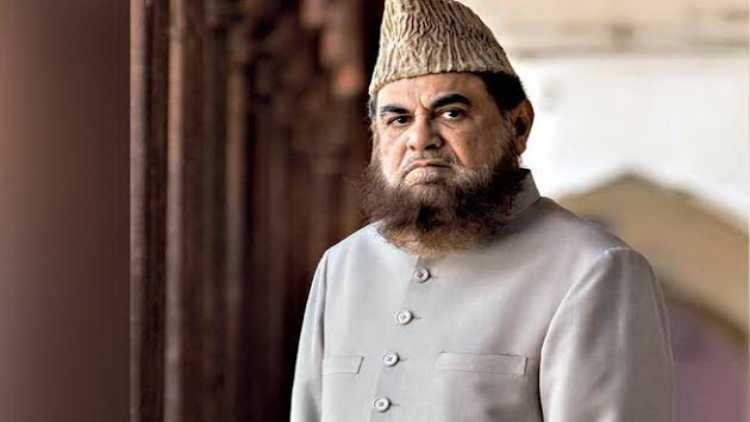
Mufti Mukarram Ahmed
When Awaz-the Voice asked Imam Mukarram Ahmed of Fatehpuri Mosque, Delhi, if it’s mandatory to perform ghusl on the body of a patient who has died at home. He said the ghusl should be performed taking all precautions. Those giving the ghusl should wear PP kit and gloves. Also, he said bathing of the body should be done quickly.He said according to Islamic jurisprudence, it is obligatory to perform ghusl on the body of a dead but it’s more important to save the living.
Dr Mufti Muhammad Mushtaq Tujarvi, of Jamia Millia Islamia, New Delhi, who is an expert and the author of several books on Islamic rules told Awaz-the voice that although ghusl is obligatory, in certain situations, it was not performed in the past too.
These situations were similar to the Covid-19 pandemic. Ghusl should be performed if only one is sure that such an act will not lead to further spread of the virus. Otherwise, there is the provision of tayammum - dry cleansing of the body in situations where water is either not available or the body has some medical issues - the water should not be used.
In such cases the burial should be performed with all respect to the dead, he added.
Caution has to be exercised in all cases of death due to Covid-19 be that in house, a hospital or any other place because it is obligatory to protect the lives of living beings.
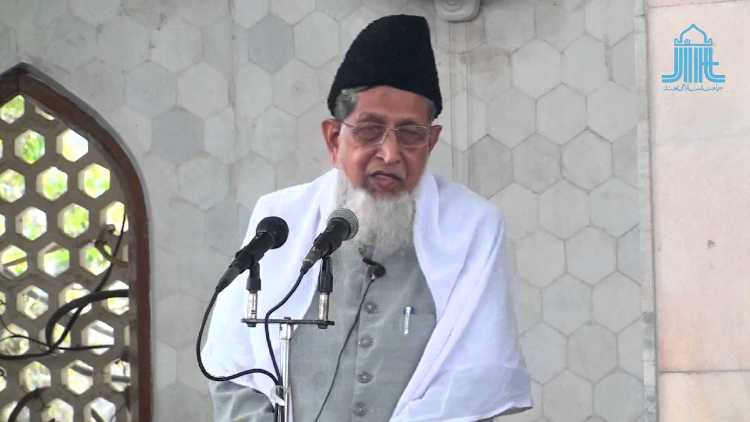 Former Chief of Jamaat-e-Islami India and President of Shariah Council Maulana Jalaluddin Umri
Former Chief of Jamaat-e-Islami India and President of Shariah Council Maulana Jalaluddin Umri
A meeting of the key Muslim organizations were held to discuss these and other related issues. It was attended by former Head of the Jamaat-e-Islami and chief of the Shariah Council, Maulana Jalaluddin Umri and Dr Muhammad Razi-ul-Islam Nadvi, secretary, Shariah Council.
They explained the issue in the context of the Sharia rules as follows:
Though bathing of the deceased is obligatory under normal circumstances, but if the doctor says there is a serious risk of spreading the virus by bathing the corpse and it’s also difficult to perform tayammum, both the obligations will stand annulled in that particular case."The same applies to covering the body in a shroud. On doctor’s advice, a body can be buried in the plastic bag in which it has been packed in hospital.”
Again, the funeral prayers should also be performed keeping in view all the precautions. The prayers can be offered close to the grave; in absentia prayers (Gayabana namaz) is also permitted.
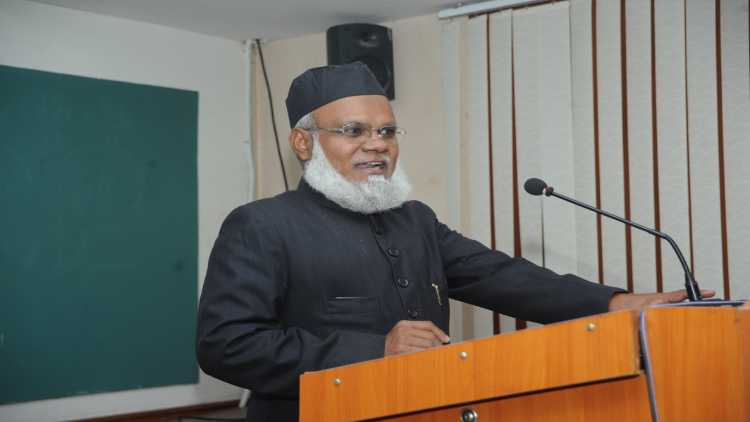
Dr Raziul Islam Nadvi
The Shariah Council has further clarified that if the doctors fear the possibility of virus spreading because of removal of the protective covering for the body to be wrapped in a shroud, the burial must take place with the body encased in the plastic bag in which the hospital has safely placed it.
It should be clarified that Maulana Jalaluddin Umri and Dr Raziul Islam Nadvi have authored several books on Islam.
Mufti Habib-ur-Rehman, Chief Mufti of Darul Uloom, Deoband, also gave a detailed reply to the above questions. He said in an exigency like death due to Covid-19, tayammum should be preferred. If both ghusl and tayammum are not feasible, then the dead can be buried after offering the prayers.
At the end of the fatwa, he wrote: "due to circumstances and compulsion, the rule of purity will be nullified and the burial will be done after the funeral prayer.”
Emarat Sharia’s viewpoint:
“In case the administration has set strict rules, then mere water can be poured over the plastic wrapped corpse and there should be no insistence of covering it in a shroud. Also, is a congregation is not allowed for funeral prayers, then all these should be waived off and the prayers offered by a small group of people.
However, the only must have is the last prayer.
The Fatwa is signed by late Maulana Muhammad Wali Rahmani, Mufti Sohail Ahmad Qasmi, head Mufti of Shariah Emirate of Bihar, Odisha and Jharkhand, Maulana Muhammad Saeed-ur-Rehman Qasmi Mufti of Shariah Emirate of Bihar, Odisha and Jharkhand.
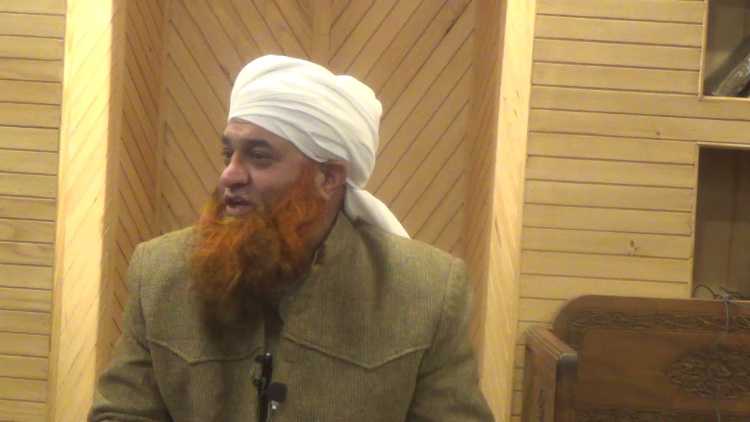
Mufti Nazeer Ahmad Qasmi
Mufti of Kashmir Nazeer Ahmad Qasmi (chief Mufti of Darul Ifta, Madrasa Rahimiyah, Bandipora) has said in case ghusl is not possible, then tayammum should be performed by someone wearing gloves. Even if permission is not given for tayammum, it should be performed on top of the plastic cover
He also advocates using a disinfectant chemical in the water used for bathing a corpse.
